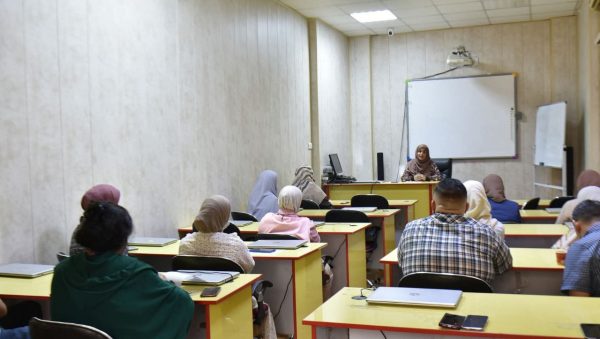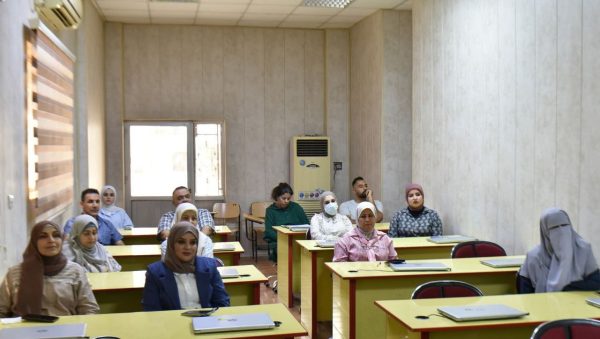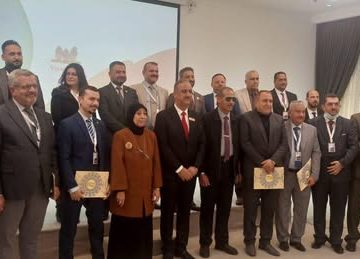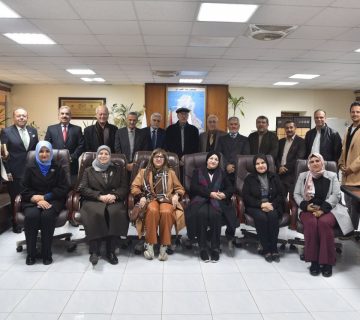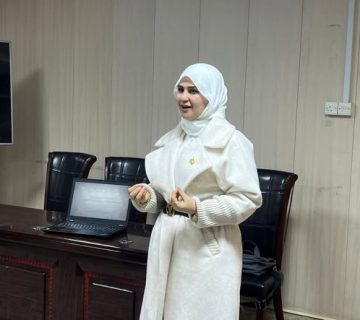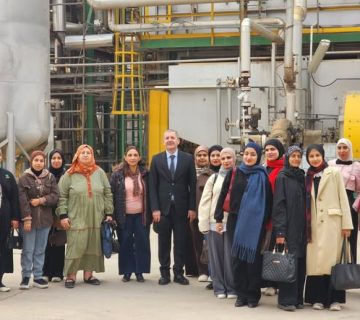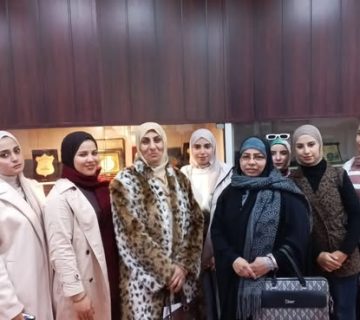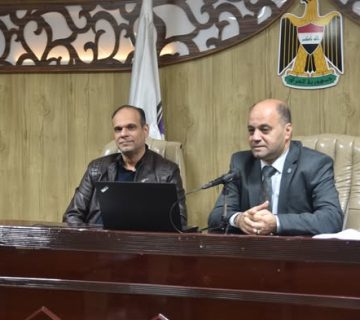Under the patronage of the Dean of the College of Science for Women, Professor Dr. Sameera Naji Khdim, the Continuing Education Unit conducted a workshop titled “Cyber Extortion”, presented by the Head of the Government Contracts Unit, Ms. Hanan Mohi Nayef.
The workshop aimed to introduce the concept of cyber extortion, defined as the use of the internet or digital means to threaten or coerce an individual by disseminating sensitive or embarrassing information in order to obtain financial or emotional gains. This phenomenon is classified as a form of cybercrime that can profoundly impact individuals psychologically and socially.
Cyber extortion takes various forms, including emotional extortion, where personal photos or conversations are used to blackmail the victim for money or other personal demands; financial extortion, which involves threatening to release sensitive information or compromising images unless a monetary payment is made; and institutional extortion, where organizations are threatened with the exposure of sensitive data unless substantial sums of money are paid. The offender typically exploits private photos or videos obtained through illicit means to manipulate the victim.
The workshop addressed the primary factors contributing to the spread of cyber extortion, such as the lack of digital awareness regarding privacy protection online, the advancement of communication technologies facilitating unauthorized access to private information, and the psychological vulnerability of certain individuals who may become susceptible to extortion due to social or psychological pressures. Additionally, the hasty sharing of personal information online significantly increases the risk of exposure to such crimes.
Several measures were proposed to combat cyber extortion, including raising awareness, education, acquiring digital skills, and methods for protecting online privacy. Emphasis was placed on the necessity of reporting incidents of cyber extortion to safeguard personal rights, alongside the use of available security tools such as strong passwords and two-factor authentication. The workshop also highlighted the importance of psychological support for victims from family, friends, and specialized centers to address the psychological repercussions of this phenomenon.
This workshop contributes to achieving the Sixteenth Goal of the Sustainable Development Goals, which focuses on “promoting peaceful and inclusive societies for sustainable development, providing access to justice for all, and building effective, accountable, and inclusive institutions at all levels.”
